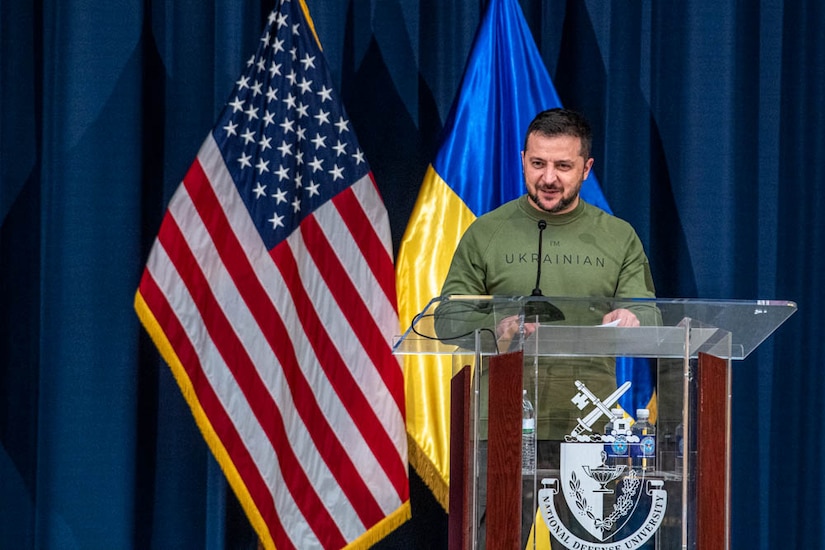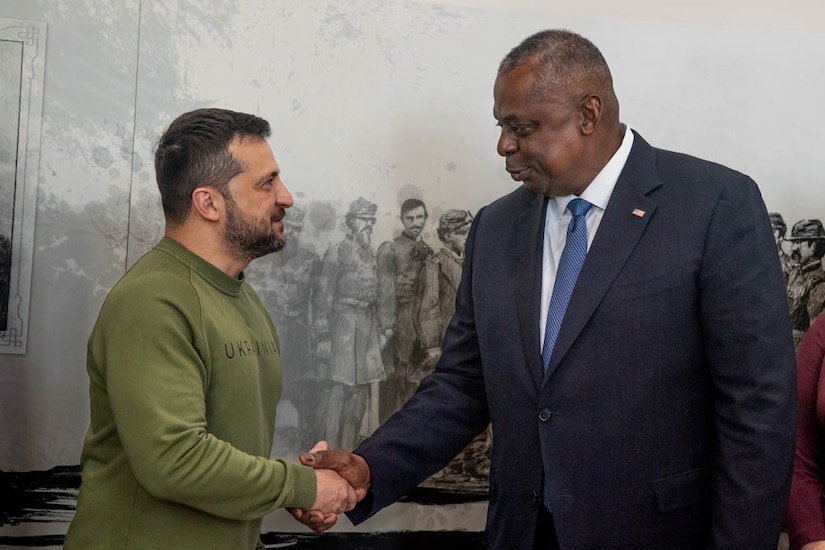编者:一篇历史性的演讲,”我们不再只依赖价值本身的力量,也开始重视力量本身的价值“。
Thank you, Larry. It is both a pleasure, and a duty, to be with you tonight in this pivotal moment that Canada and the world going through.
Today I will talk about a rupture in the world order, the end of a pleasant fiction and the beginning of a harsh reality, where geopolitics, where the large, main power, geopolitics, is submitted to no limits, no constraints.
On the other hand, I would like to tell you that the other countries, especially intermediate powers like Canada, are not powerless. They have the capacity to build a new order that encompasses our values, such as respect for human rights, sustainable development, solidarity, sovereignty and territorial integrity of the various states.
The power of the less power starts with honesty.
[Carney returns to speaking in English]
It seems that every day we're reminded that we live in an era of great power rivalry, that the rules based order is fading, that "the strong can do what they can, and the weak must suffer what they must". And this aphorism of Thucydides is presented as inevitable, as the natural logic of international relations reasserting itself.
And faced with this logic, there is a strong tendency for countries to go along to get along, to accommodate, to avoid trouble, to hope that compliance will buy safety.
Well, it won't.
So, what are our options?
In 1978, the Czech dissident Václav Havel, later president, wrote an essay called The Power of the Powerless, and in it, he asked a simple question: how did the communist system sustain itself?
And his answer began with a greengrocer.
Every morning, this shopkeeper places a sign in his window: ‘Workers of the world unite’. He doesn't believe it, no-one does, but he places a sign anyway to avoid trouble, to signal compliance, to get along. And because every shopkeeper on every street does the same, the system persist – not through violence alone, but through the participation of ordinary people in rituals they privately know to be false.
Havel called this “living within a lie”.
The system's power comes not from its truth, but from everyone's willingness to perform as if it were true, and its fragility comes from the same source. When even one person stops performing, when the greengrocer removes his sign, the illusion begins to crack. Friends, it is time for companies and countries to take their signs down.
For decades, countries like Canada prospered under what we called the rules-based international order. We joined its institutions, we praised its principles, we benefited from its predictability. And because of that, we could pursue values-based foreign policies under its protection.
We knew the story of the international rules-based order was partially false that the strongest would exempt themselves when convenient, that trade rules were enforced asymmetrically. And we knew that international law applied with varying rigour depending on the identity of the accused or the victim.
This fiction was useful, and American hegemony, in particular, helped provide public goods, open sea lanes, a stable financial system, collective security and support for frameworks for resolving disputes.
So, we placed the sign in the window. We participated in the rituals, and we largely avoided calling out the gaps between rhetoric and reality.
This bargain no longer works. Let me be direct. We are in the midst of a rupture, not a transition.
Over the past two decades, a series of crises in finance, health, energy and geopolitics have laid bare the risks of extreme global integration. But more recently, great powers have begun using economic integration as weapons, tariffs as leverage, financial infrastructure as coercion, supply chains as vulnerabilities to be exploited.
You cannot live within the lie of mutual benefit through integration, when integration becomes the source of your subordination.
The multilateral institutions on which the middle powers have relied – the WTO, the UN, the COP – the architecture, the very architecture of collective problem solving are under threat. And as a result, many countries are drawing the same conclusions that they must develop greater strategic autonomy, in energy, food, critical minerals, in finance and supply chains.
And this impulse is understandable. A country that can't feed itself, fuel itself or defend itself, has few options. When the rules no longer protect you, you must protect yourself.
But let's be clear eyed about where this leads.
A world of fortresses will be poorer, more fragile and less sustainable. And there is another truth. If great powers abandon even the pretense of rules and values for the unhindered pursuit of their power and interests, the gains from transactionalism will become harder to replicate.
Hegemons cannot continually monetize their relationships.
Allies will diversify to hedge against uncertainty.
They'll buy insurance, increase options in order to rebuild sovereignty – sovereignty that was once grounded in rules, but will increasingly be anchored in the ability to withstand pressure.
This room knows this is classic risk management. Risk management comes at a price, but that cost of strategic autonomy, of sovereignty can also be shared.
Collective investments in resilience are cheaper than everyone building their own fortresses. Shared standards reduce fragmentations. Complementarities are positive sum. And the question for middle powers like Canada is not whether to adapt to the new reality – we must. The question is whether we adapt by simply building higher walls, or whether we can do something more ambitious.
Now Canada was amongst the first to hear the wake-up call, leading us to fundamentally shift our strategic posture.
Canadians know that our old comfortable assumptions that our geography and alliance memberships automatically conferred prosperity and security – that assumption is no longer valid. And our new approach rests on what Alexander Stubb, the President of Finland, has termed “value-based realism”.
Or, to put another way, we aim to be both principled and pragmatic – principled in our commitment to fundamental values, sovereignty, territorial integrity, the prohibition of the use of force, except when consistent with the UN Charter, and respect for human rights, and pragmatic and recognizing that progress is often incremental, that interests diverge, that not every partner will share all of our values.
So, we're engaging broadly, strategically with open eyes. We actively take on the world as it is, not wait around for a world we wish to be.
We are calibrating our relationships, so their depth reflects our values, and we're prioritizing broad engagement to maximize our influence, given and given the fluidity of the world at the moment, the risks that this poses and the stakes for what comes next.
And we are no longer just relying on the strength of our values, but also the value of our strength.
We are building that strength at home.
Since my government took office, we have cut taxes on incomes, on capital gains and business investment. We have removed all federal barriers to interprovincial trade. We are fast tracking a trillion dollars of investments in energy, AI, critical minerals, new trade corridors and beyond. We're doubling our defense spending by the end of this decade, and we're doing so in ways that build our domestic industries.
And we are rapidly diversifying abroad. We have agreed a comprehensive strategic partnership with the EU, including joining SAFE, the European defense procurement arrangements. We have signed 12 other trade and security deals on four continents in six months. The past few days, we've concluded new strategic partnerships with China and Qatar. We're negotiating free trade pacts with India, ASEAN, Thailand, Philippines and Mercosur.
We're doing something else. To help solve global problems, we're pursuing variable geometry, in other words, different coalitions for different issues based on common values and interests. So, on Ukraine, we're a core member of the Coalition of the Willing and one of the largest per capita contributors to its defense and security.
On Arctic sovereignty, we stand firmly with Greenland and Denmark, and fully support their unique right to determine Greenland's future.
Our commitment to NATO's Article 5 is unwavering, so we're working with our NATO allies, including the Nordic Baltic Gate, to further secure the alliance's northern and western flanks, including through Canada's unprecedented investments in over-the-horizon radar, in submarines, in aircraft and boots on the ground, boots on the ice.
Canada strongly opposes tariffs over Greenland and calls for focused talks to achieve our shared objectives of security and prosperity in the Arctic.
On plurilateral trade, we're championing efforts to build a bridge between the Trans Pacific Partnership and the European Union, which would create a new trading bloc of 1.5 billion people. On critical minerals, we're forming buyers’ clubs anchored in the G7 so the world can diversify away from concentrated supply. And on AI, we're cooperating with like-minded democracies to ensure that we won't ultimately be forced to choose between hegemons and hyper-scalers.
This is not naive multilateralism, nor is it relying on their institutions. It's building coalitions that work – issues by issue, with partners who share enough common ground to act together.
In some cases, this will be the vast majority of nations.
What it's doing is creating a dense web of connections across trade, investment, culture, on which we can draw for future challenges and opportunities.
Argue, the middle powers must act together, because if we're not at the table, we're on the menu.
But I'd also say that great powers, great powers can afford for now to go it alone. They have the market size, the military capacity and the leverage to dictate terms. Middle powers do not.
But when we only negotiate bilaterally with a hegemon, we negotiate from weakness. We accept what's offered. We compete with each other to be the most accommodating.
This is not sovereignty. It's the performance of sovereignty while accepting subordination. In a world of great power rivalry, the countries in between have a choice – compete with each other for favour, or to combine to create a third path with impact.
We shouldn't allow the rise of hard power to blind us to the fact that the power of legitimacy, integrity and rules will remain strong, if we choose to wield them together – which brings me back to Havel.
What does it mean for middle powers to live the truth?
First, it means naming reality. Stop invoking rules-based international order as though it still functions as advertised. Call it what it is – a system of intensifying great power rivalry, where the most powerful pursue their interests, using economic integration as coercion.
It means acting consistently, applying the same standards to allies and rivals. When middle powers criticize economic intimidation from one direction, but stay silent when it comes from another, we are keeping the sign in the window.
It means building what we claim to believe in, rather than waiting for the old order to be restored. It means creating institutions and agreements that function as described. And it means reducing the leverage that enables coercion – that's building a strong domestic economy. It should be every government's immediate priority.
And diversification internationally is not just economic prudence, it's a material foundation for honest foreign policy, because countries earn the right to principled stands by reducing their vulnerability to retaliation.
So Canada. Canada has what the world wants. We are an energy superpower. We hold vast reserves of critical minerals. We have the most educated population in the world. Our pension funds are amongst the world's largest and most sophisticated investors. In other words, we have capital, talent… we also have a government with immense fiscal capacity to act decisively. And we have the values to which many others aspire.
Canada is a pluralistic society that works. Our public square is loud, diverse and free. Canadians remain committed to sustainability. We are a stable and reliable partner in a world that is anything but.. A partner that builds and values relationships for the long term.
And we have something else. We have a recognition of what's happening and a determination to act accordingly. We understand that this rupture calls for more than adaptation. It calls for honesty about the world as it is.
We are taking the sign out of the window. We know the old order is not coming back. We shouldn't mourn it. Nostalgia is not a strategy, but we believe that from the fracture, we can build something bigger, better, stronger, more just. This is the task of the middle powers, the countries that have the most to lose from a world of fortresses and most to gain from genuine cooperation.
The powerful have their power.
But we have something too – the capacity to stop pretending, to name reality, to build our strength at home and to act together.
That is Canada's path. We choose it openly and confidently, and it is a path wide open to any country willing to take it with us. Thank you very much.
似乎每天我们都会被提醒:我们生活在一个大国竞争的时代——基于规则的秩序正在消退,“强者可以为所欲为,弱者只能逆来顺受“。
(法语开头)
谢谢你,拉里。对于加拿大和全世界来说,今晚都是一个关键的转折点。能够在这样一个关键时刻和您在一起,即是我的荣幸,也是我的责任。我今天的发言内容是关于世界的失序,是一个美好虚构的终结,以及一个严酷现实的开始。在这个现实中,地缘政治——尤其是大国主导的地缘政治——不再受到任何限制,也不再受任何约束。不过与此同时,我也想要告诉诸位,其它国家,特别是像加拿大这样的中等强国,并非无能为力。他们可以建立一个符合自己价值体系的新秩序,一个基于人权,可持续发展,团结合作,尊重主权和领土完整的新秩序。
既然我们并非强权,那么我们力量就得从诚实开始。
(英语)
似乎每天我们都会被提醒:我们生活在一个大国竞争的时代——基于规则的秩序正在消退,“强者可以为所欲为,弱者只能逆来顺受“,修昔底德的这句格言被认为不可避免,仿佛国际关系的自然逻辑正在重新确立。面对这种逻辑,各国有一种强烈的随波逐流的倾向,迁就、妥协、避免麻烦,寄希望于通过绥靖来换取安全。
但事实上,这行不通。那么我们有哪些选择呢?
1978年,捷克异议人士,后来成为总统的瓦茨拉夫·哈维尔写了一篇题为《无权者的力量》的文章,在其中他提出了一个简单的问题:共产主义体制是如何维系自身的?
而他的答案从一位蔬菜水果商开始。
每天早晨,店主都会在橱窗里放一块牌子:“全世界工人联合起来。”他并不相信这句话。没人相信。但他仍然把牌子放上去,以避免麻烦、表明顺从、相安无事。由于每条街上每家店铺都这样做,体制便得以延续——不仅仅依靠暴力,也靠普通人对他们私下明知是虚假仪式的参与。
哈维尔称之为“生活在谎言之中”。体制的力量不来自其真实,而来自每个人都愿意表现得仿佛它是真的;而它的脆弱也同样来源于此。当哪怕只有一个人停止表演,当那位蔬菜水果商把牌子撤下,幻象便开始破裂。朋友们,是时候让公司和国家把自己的牌子摘下来了。
几十年来,加拿大这样的国家在所谓的“基于规则的国际秩序”下繁荣发展。我们加入其机构,赞颂其原则,并受益于其可预期性。正因如此,我们才能在其庇护下推行以价值观为导向的外交政策。
我们早就知道,所谓“以规则为基础的国际秩序”的叙事在某种程度上是虚假的——最强者会在方便的时候让自己置身规则之外,贸易规则被不对称地执行;国际法的适用力度,也会因被指控者或受害者的身份不同而有所差别。
但这个“虚构”曾经是有用的。尤其是美国的支配权,在相当长一段时间里确实提供了公共产品:开放的海上航道、稳定的金融体系、集体安全,以及解决争端的制度框架支持。
因此,我们把那块“招牌”摆在橱窗里。我们参与这些仪式,也在很大程度上避免去指出修辞与现实之间的裂缝。
但这笔交易现在开始已经不灵了。让我直说吧:我们正身处一次断裂之中,而不是一次过渡。
在过去二十年里,金融、公共卫生、能源和地缘政治的一系列危机,已经暴露了极端全球一体化所带来的风险。而最近,大国开始把经济一体化当作武器,把关税当作筹码,把金融基础设施当作胁迫工具,把供应链当作可以被利用的脆弱点。
当一体化成为你被胁迫的来源时,你就无法继续活在“通过一体化实现互利共赢”的谎言之中。
中等强国所依赖的多边机构——世贸组织、联合国、气候大会(COP)——用于集体解决问题的制度架构,正面临威胁。结果是,越来越多国家得出相同结论:它们必须在能源、粮食、关键矿产、金融和供应链方面,发展更大的战略自主性。
这种冲动是可以理解的。一个无法自给粮食、无法自给能源、也无法自我防卫的国家,几乎没有选择。当规则不再保护你时,你就只能保护自己。
但我们必须清醒地看到,这条道路通向何处。
一个由“堡垒国家”构成的世界,将更加贫穷、更为脆弱、也更不可持续。还有一个事实必须正视:如果大国连规则和价值的表象都不再维持,而是毫无约束地追逐自身权力与利益,那么交易式关系所带来的收益也将越来越难以复制。
霸权国家不能无休止地将其关系货币化。盟友会为了对冲霸权国家的不确定性而分散风险。他们会购买“保险”,增加选择,以重建主权——这种主权曾经建立在规则之上,而未来将越来越依赖于承受压力的能力。
在座各位都明白,这是典型的风险管理。风险管理有成本,但战略自主、主权的成本是可以被分摊的。
集体投资以增强韧性,比各自修建堡垒要便宜得多。共同标准可以减少碎片化,互补性是正和博弈。对加拿大这样的中等强国来说,问题不在于是否适应新的现实,而是别无他选。问题在于,我们是仅仅筑起更高的围墙,还是能够做得更加雄心勃勃。
加拿大是最早听到警钟的国家之一,因此我们从根本上调整了自身的战略姿态。
加拿大人清楚地认识到,过去那种认为地理位置和盟友身份会自动带来繁荣与安全的舒适假设,已经不再成立。我们的新路径,正如芬兰总统亚历山大·斯图布所说,是一种“以价值为基础的现实主义”。
换句话说,我们追求既有原则、也务实——在对基本价值、主权、领土完整、除非符合《联合国宪章》否则禁止使用武力、以及尊重人权方面保持原则;同时也务实地承认,进步往往是渐进的,利益并不总是一致,也不是每一个伙伴都会共享我们所有的价值。
因此,我们以更清醒的方式,广泛而有战略性地展开交往。我们主动面对现实世界,而不是等待一个我们所希望的世界。
我们正在校正我们的关系深度,使之反映我们的价值取向。在一个高度流动、风险上升、未来走向充满不确定性的世界里,我们优先推动广泛接触,以最大化我们的影响力。
我们不再只依赖价值本身的力量,也开始重视力量本身的价值。
我们正在国内建设这种力量。
自本届政府执政以来,我们削减了个人所得税、资本利得税和企业投资税;消除了所有联邦层面的省际贸易壁垒;正在加速推进总额达一万亿美元的投资,涵盖能源、人工智能、关键矿产、新贸易走廊等领域。到2030年,我们将国防开支翻倍,并以促进本国产业发展的方式来实施这些投入。
与此同时,我们正在迅速实现对外多元化。我们已与欧盟达成全面战略伙伴关系,并加入欧洲防务采购机制
SAFE;在六个月内,我们在四大洲签署了12项贸易与安全协议。过去几天里,我们又与中国和卡塔尔建立了新的战略伙伴关系。我们正在与印度、东盟、泰国、菲律宾以及南方共同市场谈判自由贸易协定。
我们还在做另一件事:为了解决全球性问题,我们推动“可变几何”合作——也就是针对不同议题,基于共同价值与利益,建立不同的联盟。
在乌克兰问题上,我们是“志愿联盟”的核心成员之一,也是按人均计算对其防务与安全贡献最大的国家之一。
在北极主权问题上,我们坚定地与格陵兰和丹麦站在一起,完全支持他们决定格陵兰未来的独特权利。
我们对北约第五条的承诺坚定不移,并正与包括“北欧—波罗的海门户”在内的北约盟友合作,进一步巩固联盟的北翼和西翼,包括加拿大前所未有地投资于超视距雷达、潜艇、航空力量,以及在地面、在冰原上的部队部署。
加拿大坚决反对围绕格陵兰问题施加关税,并呼吁开展有针对性的对话,以实现我们在北极地区安全与繁荣的共同目标。
在多边贸易方面,我们正推动跨太平洋伙伴关系与欧盟之间建立桥梁,从而形成一个覆盖15亿人口的新贸易集团。在关键矿产领域,我们以七国集团为锚,组建“买方俱乐部”,帮助世界摆脱对集中供应的依赖。在人工智能方面,我们与志同道合的民主国家合作,确保未来不至于被迫在霸权国家与超大规模服务商之间做出选择。
这不是天真的多边主义,也不是对各国机构的依赖,
它所做的,是在贸易、投资和文化等领域,织就一张密集的关系网络,以应对未来的挑战与机遇。
我认为,中等强国必须携手行动,因为如果我们不在餐桌上,就会出现在菜单上。
当然,大国目前仍有能力单打独斗。它们拥有市场规模、军事实力和制定规则的杠杆,而中等强国并不具备这些条件。
当我们只与霸权国家进行双边谈判时,我们是从弱势地位出发的。我们只能接受对方给出的条件,并彼此竞争,争当最“顺从”的一方。
这不是主权,而是在接受从属地位的同时表演主权。在大国竞争的世界中,夹在中间的国家有一个选择:要么彼此争夺青睐,要么联合起来,开辟一条具有现实影响力的第三条道路。
我们不应让硬实力的崛起蒙蔽双眼,而忽视合法性、正直与规则的力量。只要我们选择共同运用这些力量,它们就依然强大。这也让我回到了哈维尔。
中等强国“活在真理中”意味着什么?
首先,是直面现实。不要再假装“以规则为基础的国际秩序”仍在运行。我们不妨直陈其实:这是一个大国竞争不断加剧的体系,最强者利用经济一体化作为胁迫工具来谋求自身利益。
其次,是言行一致,对盟友和对手用同样的标准。当中等强国只对来自某个方向的经济胁迫加以谴责,而对来自另一个方向的保持沉默时,我们就仍然是把那块招牌留在橱窗里。
再次,是建设我们所宣称信奉的东西,而不是等待旧秩序回归。是打造真正名副其实的制度和协议,也是减少胁迫得以发生的杠杆——这意味着建设强大的国内经济。这应当成为每一个政府的当务之急。
而国际多元化不仅是经济上的谨慎之举,更是诚实外交的物质基础。因为只有降低自身遭到报复的脆弱性,国家才有资格坚持原则立场。
谈到加拿大——加拿大拥有世界所需要的东西。我们是能源超级大国,拥有丰富的关键矿产储备;我们拥有世界上受教育程度最高的人口;我们的养老金基金是全球规模最大、最成熟的投资者之一。换言之,我们拥有资金与人才,也拥有一个具备强大财政能力、能够果断行动的政府;同时,我们还拥有许多人向往的价值观。
加拿大是一个运转良好的多元社会。我们的公共空间喧闹、多样而自由。加拿大人依然致力于可持续发展。在一个极不稳定的世界中,我们是一个稳定、可靠的伙伴,一个建立并珍视长期关系的伙伴。
我们还有一样东西:对正在发生之事的清醒认知,以及据此采取行动的决心。我们明白,这场断裂不仅需要适应,更需要直面现实的诚实。
我们正在把那块招牌从橱窗里取下来。我们知道旧秩序不会回来了。我们不该为它哀悼——怀旧不是一种战略。但我们相信,从这场裂变之中,我们能够建设出一个更宏大、更强大、更公正的体系。这正是中等强国的使命——那些在“堡垒世界”中损失最大、却在真正合作中获益最多的国家。
强者拥有他们的力量。
而我们也拥有属于我们的东西——停止假装的能力,直面现实的能力,建设国内力量的能力,以及携手行动的能力。
这就是加拿大的道路。我们公开而自信地选择了它,并且这条道路向任何愿意与我们同行的国家敞开。
谢谢大家。



